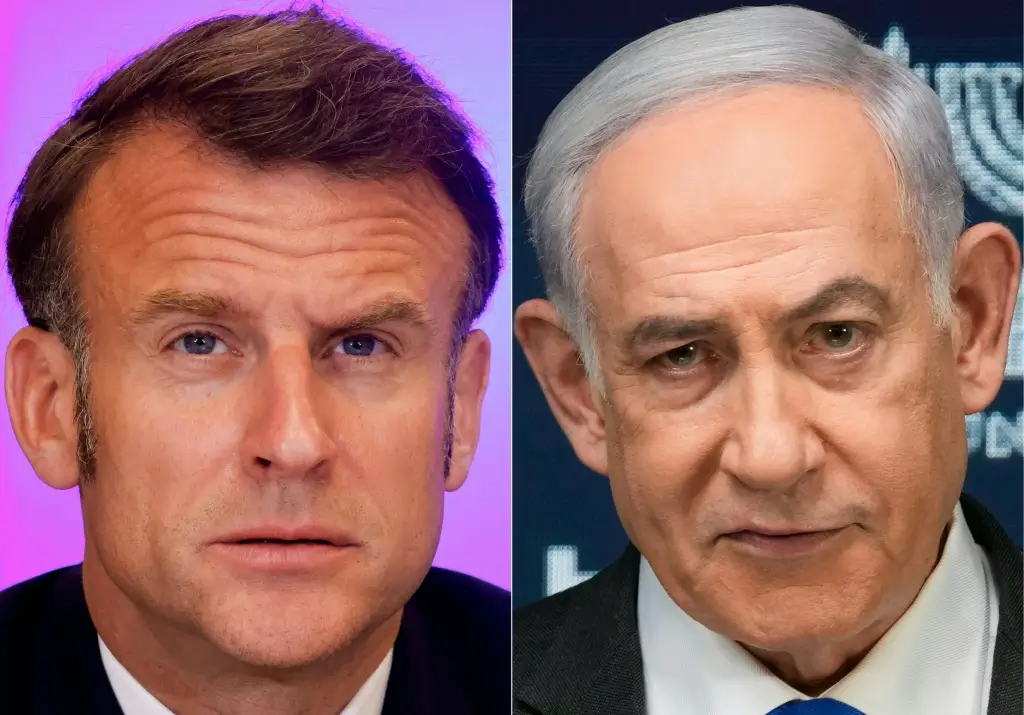
Australia and France have both entered into sharp diplomatic confrontations with Israel after announcing plans to recognise a Palestinian state, with Israeli Prime Minister Benjamin Netanyahu lashing out at their leaders in unusually personal terms. The row marks a rapid deterioration in Israel's relations with two of its traditional partners, as international recognition of Palestinian statehood gains momentum nearly two years into the Gaza war.
Australia, historically a close ally of Israel and home to one of the world’s largest Holocaust survivor communities, saw its relationship with Israel unravel in just over a week. The downturn began when Canberra announced that it would formally recognise Palestinian statehood next month, joining France, Canada, and the United Kingdom in similar moves.
Netanyahu reacted furiously, branding Australian Prime Minister Anthony Albanese a "weak politician who betrayed Israel and abandoned Australia's Jews." His comments came after Australia cancelled the visa of far-right Israeli politician Simcha Rothman, citing concerns that his speaking tour would "spread division." Israel retaliated by revoking visas held by Australia’s representatives to the Palestinian Authority.
Australian Home Affairs Minister Tony Burke hit back, describing Netanyahu’s outburst as frustration boiling over. "Strength is not measured by how many people you can blow up or how many children you can leave hungry," Burke said. He added that Israel’s recent actions were isolating it further from the global community.
The spat marks a sharp break from decades of solidarity. In the 1950s, Australia was a key refuge for Holocaust survivors, with Melbourne once home to the largest per-capita population of survivors outside Israel. Relations had already shown strain late last year following antisemitic incidents in Sydney and Melbourne, and Netanyahu had accused Canberra of harbouring "anti-Israel sentiment."
France’s ties with Israel also nosedived after President Emmanuel Macron announced that his country would formally recognise a Palestinian state at a UN meeting in September. Netanyahu responded with a scathing letter, accusing Macron of "fomenting antisemitism" in France. He argued that the recognition move would embolden Hamas, endanger French Jews, and fuel anti-Jewish violence.
The Elysee Palace fired back, calling Netanyahu’s accusation "abject" and "erroneous." "This is a time for seriousness and responsibility, not for conflation and manipulation," the French presidency said. It emphasised that France would continue to "protect its Jewish citizens" and that antisemitic violence was "intolerable."
France, which has Europe’s largest Jewish community, has witnessed a surge in antisemitic incidents since the Gaza war began. According to the interior ministry, reported antisemitic acts jumped from 436 in 2022 to 1,676 in 2023, before dipping slightly to 1,570 last year. Macron’s government has maintained that recognising a Palestinian state aligns with its long-standing support for a two-state solution and does not equate to endorsing Hamas.
French Europe Minister Benjamin Haddad said France had "no lessons to learn in the fight against antisemitism," stressing that the issue "must not be exploited." The Palestinian Authority’s foreign ministry also condemned Netanyahu’s remarks, saying he was deliberately confusing criticism of Israeli occupation with antisemitism.
Israel’s clashes with Australia and France underscore its growing isolation as the Gaza war continues. Triggered by the October 2023 Hamas attack, the conflict has left Gaza on the brink of famine, with UN-backed experts warning of catastrophic humanitarian conditions due to Israel’s tight restrictions on aid.
New Zealand Prime Minister Christopher Luxon last week added his voice to the criticism, bluntly stating that Netanyahu had "lost the plot." The combined push from Western allies to recognise Palestinian statehood represents a serious diplomatic blow to Israel, which has long opposed unilateral recognition without a negotiated peace deal.
In just nine days since Australia’s announcement, Canberra and Jerusalem have engaged in tit-for-tat measures, Macron has exchanged heated words with Netanyahu, and Israel has faced mounting calls from world leaders for accountability in Gaza.
The dual confrontations highlight a shifting international stance on the Israeli-Palestinian conflict. More than 145 of the 193 UN member states now recognise or plan to recognise Palestinian statehood, according to an AFP tally. For Israel, the erosion of support from allies such as Australia and France is a stark warning that its longstanding opposition to Palestinian recognition may no longer hold firm.
Netanyahu’s combative tone towards leaders like Macron and Albanese signals not only diplomatic strain but also Israel’s increasingly defensive posture as criticism of its Gaza policies intensifies.
With Australia and France joining a growing list of nations pressing ahead with Palestinian recognition, Israel’s diplomatic battles appear set to intensify further, leaving its leadership to confront a world where some of its oldest allies are openly challenging its direction.